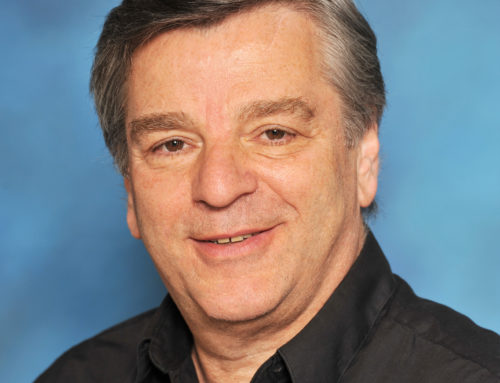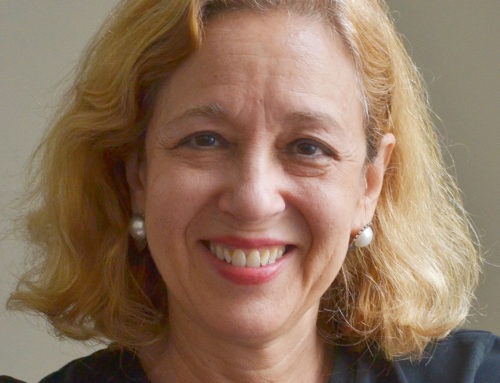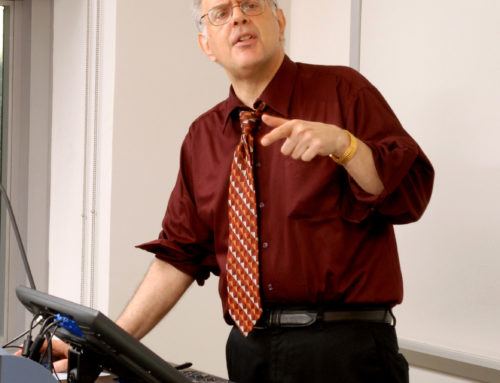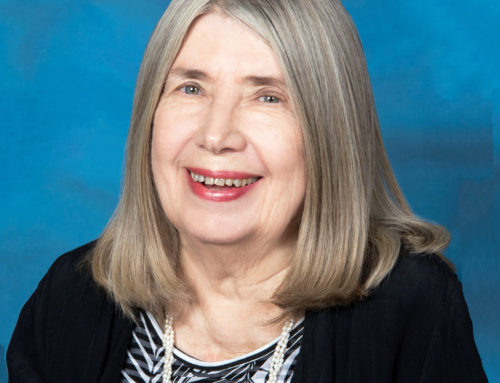Retiring Faculty
Dr. Sandy Westcott: Bringing Dimension to Technology
By Lois Elfman
Soon after Dr. Sandy Westcott began teaching at St. Francis College on February 14, 2000, as an adjunct professor, she felt a shift in her life. While she loved her career at AT&T, where over the course of 17 years she worked as a software developer, systems analyst, quality analyst, systems tester and project manager, she realized something was missing.
Teaching gave her the joy of giving back and making a difference in the lives of future IT (information technology) professionals. Seeing students achieve those “aha moments” when they grasped a concept and completed assignments convinced her to change course. Within two months of teaching at SFC, she decided to leave the corporate world and work at St. Francis full-time teaching management & information technology and project management.
Now, life has come full circle. In 2019, she relocated to Savannah, Georgia, and is once again an adjunct for St. Francis, now teaching online. She misses the face-to-face interactions with students, but is grateful that the connection is ongoing.
How did you bring your extensive experience at AT&T to your students?

Dr. Sandy Westcott
SW: First and foremost, as we were studying textbook material, I would always interject stories and my experiences to illustrate how the principles, concepts and theories that they were learning were actually applied to real world situations.
I would also invite guest speakers who were working in the industry to come to the classes. I had a lot of artifacts that I created in the corporate world that I would bring in and show them, so they could actually see that what they were learning was relevant to jobs they may have in the future.
Particularly in project management, I would have students work on group projects. I would always be the client. Each student got to play the role of a project manager (PM) during the project lifecycle. Each PM was responsible for managing their team, dealing with team issues, monitoring task progress, maintaining the project schedule, creating deliverables, communicating with their teams and the client, monitoring their phase of the project and making any adjustments necessary to keep the project on track. They had to handle unexpected things like reorganizations, changes in project requirements, changes in deadlines and changes in budget.
I groomed students on things such as how to write professional emails, how to conduct themselves at a client meeting, how to come to client meetings prepared to answer client questions, how to manage a team, how to create professional documents and reports for clients, how to deal with the stress of constant change and how to manage difficult clients or team members.
How have the students and the courses changed over the years you’ve taught at St. Francis?
SW: The students today have a much better understanding of the world that they’re facing in that long-term relationships with an employer are becoming rather rare. I think students today realize that they may have five or more jobs throughout their career and that the success of their career doesn’t depend on one big decision that they make when they graduate. They need to continuously be learning and trying new things.
The courses today are more focused on applied theory. In other words, how do I take what I’m learning—the theories, concepts and principles—and apply them to solving real world problems? The courses also are increasingly emphasizing teamwork using virtual technologies and are also emphasizing more of the soft skills because employers are placing more emphasis on soft skills like effective communication, leadership potential and problem solving.
Is there a moment, class or event that especially stands out?
SW: In the summer of 2009, I was approached by one of the brothers who told me that the brothers needed a tracking system (related to finances) to be built. As I was getting the details of the system, I realized, “This is a perfect opportunity for some of my students to work on a real project and get paid for it.”
The brother and I discussed this possibility of having students build the system and he said with the provision that I would function as their expert guide and mentor. I selected the students to form the team. They wound up doing a great job. I was so proud of them and they were so amazed at everything they had accomplished.
Do you have any message you want to share with the St. Francis community as it faces the ongoing challenges due to COVID-19?
SW: We have had to in a very short timeframe learn new ways to maintain that sense of community while we have this physical separation. COVID-19 has shown us the need for keeping our technological skills up to date. It’s essential for our survival and the survival of the institution. Welcome it as a challenge that brings new opportunities.





